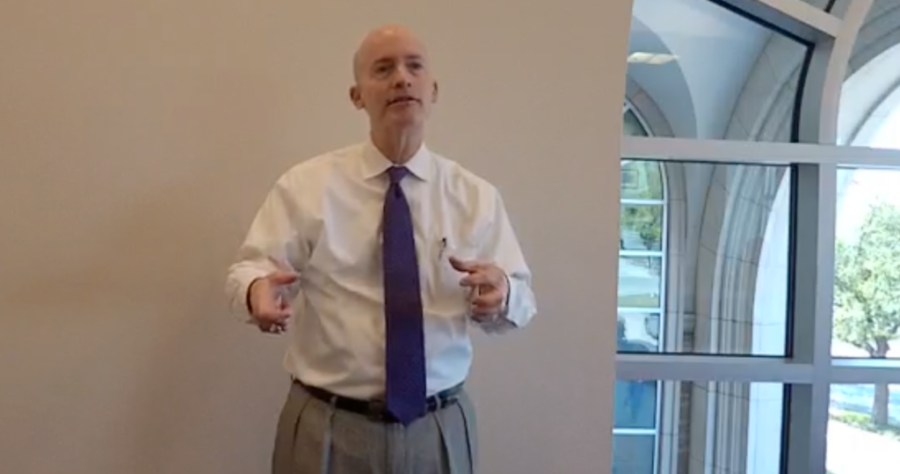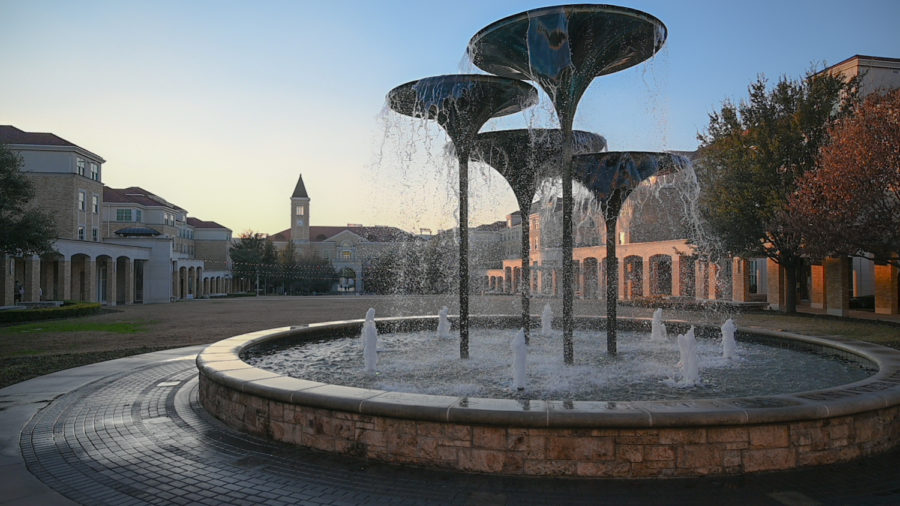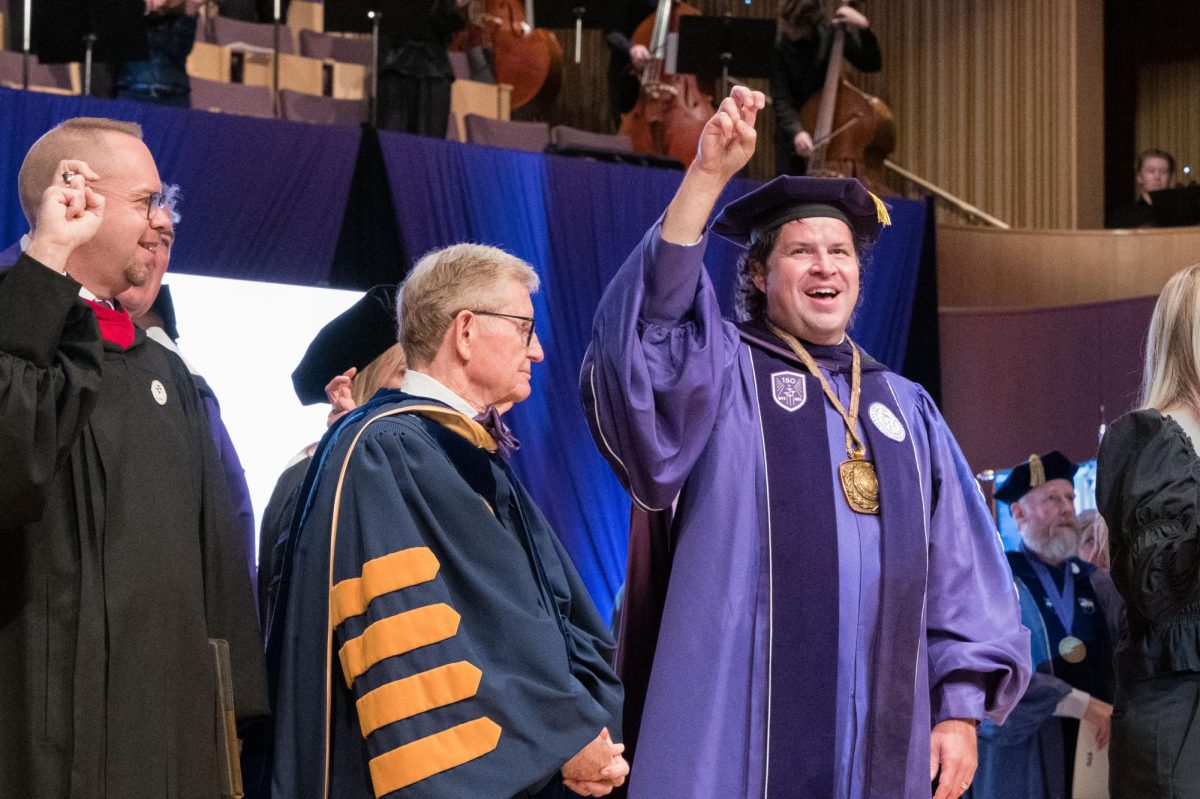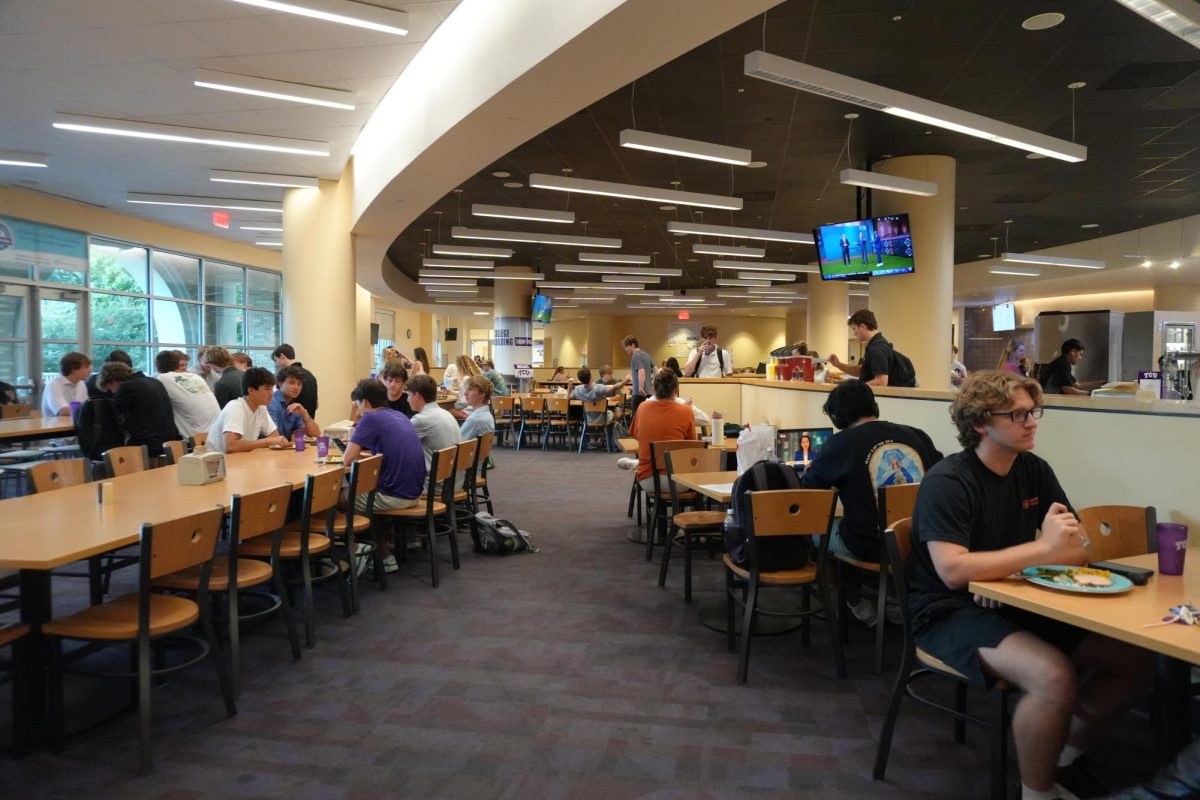TCU may bleed purple, but the campus also thinks green by implementing efforts to improve sustainability on campus through water sensors, resource efficient certified buildings and student education. Chancellor Victor Boschini said he wanted students to know the importance of sustainability and how the campus is working to improve the environment on Monday afternoon in the Brown-Lupton University Union. At a previous commencement, Boschini said, “TCU’s third cardinal goal is to sustain an environment of rich personal interaction enhanced by outstanding facilities and technology.” To fulfill the campuses goal, Boschini said TCU has already taken many green initiatives since his arrival to campus in 2003. One initiative is the underground water sensors, which sense when the grass needs to be watered, Boschini said. Prior to 2003, the university over-watered all the lawns and the grass would be watered even after a rainstorm. Additionally, Boschini said Market Square has made changes to help the environment by taking away the traditional cafeteria trays and modifying the silverware. “Our silverware isn’t metal anymore,” Boschini said. “They are made out of potatoes.” Vice Chancellor Cavins-Tull said TCU uses plant based products for disposable cutlery to reduce the amount of plastic heading to the landfill. Boschini said green initiatives are not just around the campus commons, but are also in the campus’ construction, renovation, facility and management practices. Sam Baugh Indoor Practice Facility, Scharbauer Hall, The BLUU, TCU Admissions Building and Sherley Hall are just a few of TCU’s LEED-certified buildings on campus. LEED stands for Leadership in Energy and Environmental Design, according to U.S. Green Building Council website. LEED inspires individuals to change the way buildings and communities are planned and is a third-party verification for eco-friendly buildings. Eco-friendly or green buildings can become LEED certified and receive a certain amount of points by addressing multiple sustainability issues. A building’s number of points then translates into four LEED rating levels: Certified, Silver, Gold and Platinum. Boschini said TCU’s goal is to make all their buildings LEED certified and multiple of them have reached the gold certification. Students not only get to live and learn about sustainability during their time on campus but can also take greener initiatives at Frog Camp. At Eco Frog Camp students travel to Costa Rica in the summer and learn about conservation and sustainability at a TCU’s biology research station. Because of all of TCU’s sustainability efforts, the Princeton review said TCU is one of the three Texas universities recognized as one of the country’s top “green” schools.
Chancellor talks sustainability on campus
Published Mar 31, 2017
More to Discover









